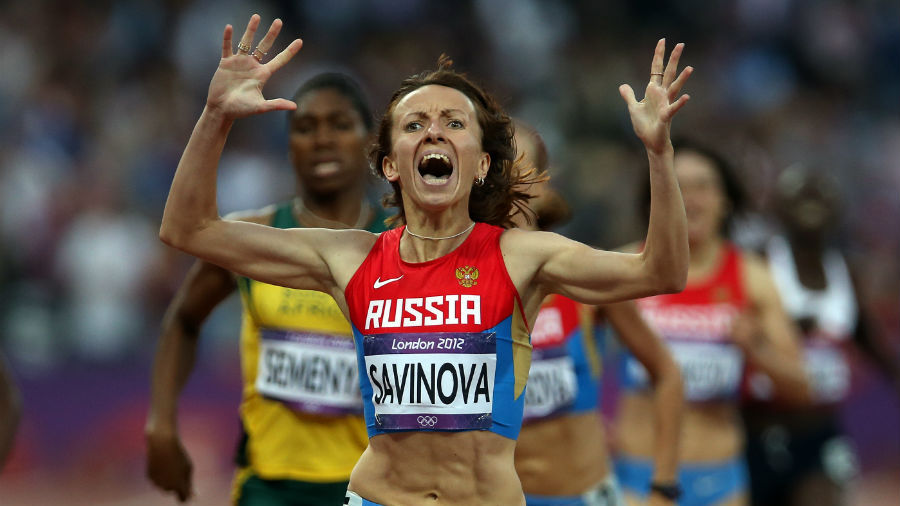- Athletics
Russia facing 'serious' allegations of systematic doping

Russia faced explosive allegations of corruption and systematic doping on Wednesday, including the reported admission of drug use by an Olympic champion runner and cover-up and extortion involving a three-time Chicago Marathon winner.
Both German television channel ARD and French sports daily L'Equipe reported that Liliya Shobukhova, who won the Chicago Marathon from 2009 to 2011 and the London race in 2010, paid the Russian athletics federation €450,000 euros (£353,643) to cover up a positive doping case.
ARD also appeared to show reigning Olympic 800 metres champion Maria Savinova admitting to using the banned steroid oxandrolone in an undercover video that has the woman's face out of focus. The video was dubbed into German with the original audio track absent, but ARD said it possessed an unedited version.
The IAAF, the governing body of athletics, said there was "already an on-going investigation by the IAAF Ethics Commission" into Shobukhova's allegations.
The ARD report also linked doping to Russian officials and athletes in other sports, including swimming, cycling, biathlon, weightlifting and cross-country skiing. The Russian athletics federation and national anti-doping agency declined to comment.
The reports also include accusations from former Russian Anti-Doping Agency official Vitaly Stepanov and his wife Yulia, who previously competed as an 800m runner under the name Yulia Rusanova and was banned for doping.
Stepanov told ARD that various Russian sports federations "would come to [Russian] doping control officers" offering "extra cash" to hush up positive tests. He also accused the head of the national doping test laboratory, Grigory Rodchenkov, of falsifying tests and selling banned substances.
Yulia Stepanova accused coaches of providing her with banned substances.
"These are serious allegations. I understand an investigation is already underway by the IAAF ethics commission and we await the full findings," IOC spokesman Mark Adams told The Associated Press. "Should there be anything affecting the International Olympic Committee and our code of ethics we will not hesitate take any and all action necessary."
Yulia Stepanova also accused the head of the Russian federation's medical department, Sergei Portugalov, of supplying doping products in exchange for five percent of an athlete's earnings, plus bonuses for competition wins. She also said Russian athletes had avoided out-of-competition testing by using false names during foreign training camps.
The main organisations involved - the Russian athletics federation, the Russian Anti-Doping Agency and the national doping test laboratory - are all funded and overseen by the Russian government.
"Of course it's shocking," World Anti-Doping Agency director general David Howman told ARD. "We've got to make sure ... that those who are suffering from fear are protected."
Shobukhova said she and her husband paid €450,000 (£353,643) to Russian federation officials after being threatened that she "could have problems" with doping and miss the 2012 London Olympics. She did run in the Olympic marathon, but failed to finish.
When Shobukhova was banned this year, her husband received a €300,000 (£235,763) refund, ARD reported, adding it had linked the transfer to federation president Valentin Balakhnichev, who is also the IAAF treasurer.
"Somebody's got to come up with an answer," former WADA president Dick Pound said. "If something of this nature is being organised in any country, it's a very serious problem for the credibility of international sport and the credibility of anti-doping efforts."
Shobukhova's time of two hours 18 minutes 20 seconds in Chicago in 2011 made her the second-fastest women's marathon runner behind record holder Paula Radcliffe. But in April, she was banned for two years for suspicious blood values in samples given for her biological passport. She was then stripped of her Chicago wins and ordered to repay her prize money.
The Court of Arbitration for Sport said on Wednesday that the IAAF had appealed the two-year ban, which expires next month, seeking a four-year sanction.
This article originally appeared on ESPN.com

